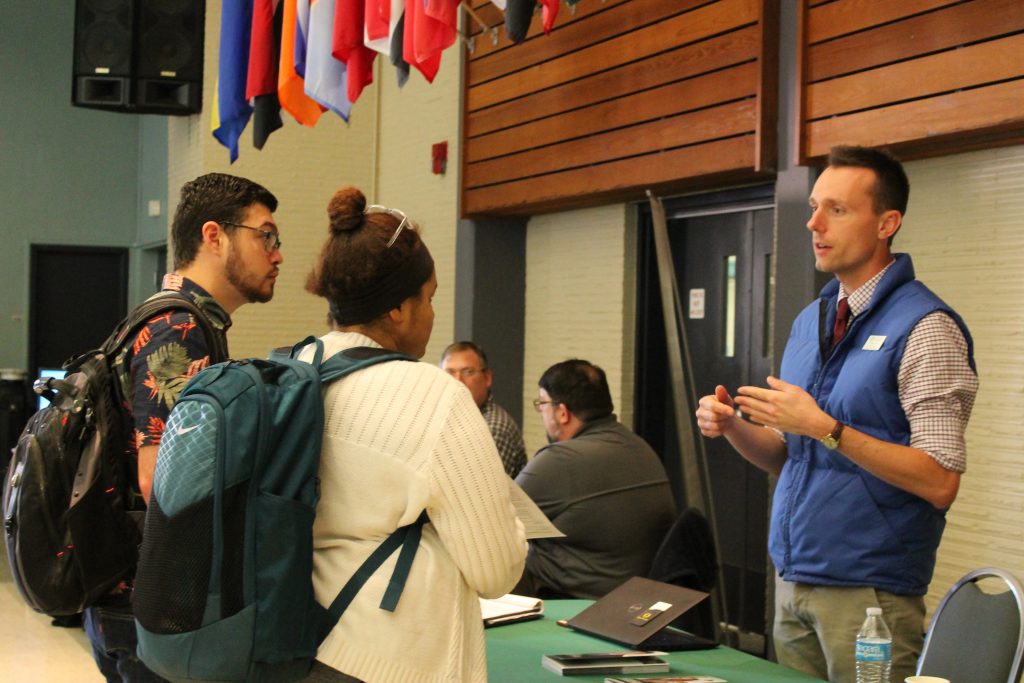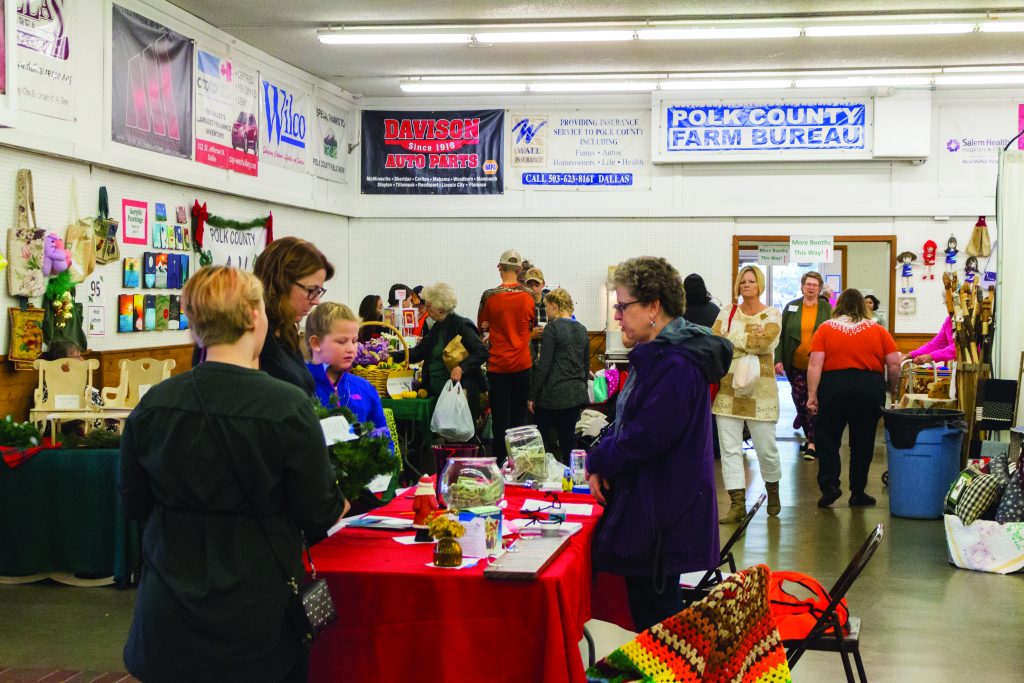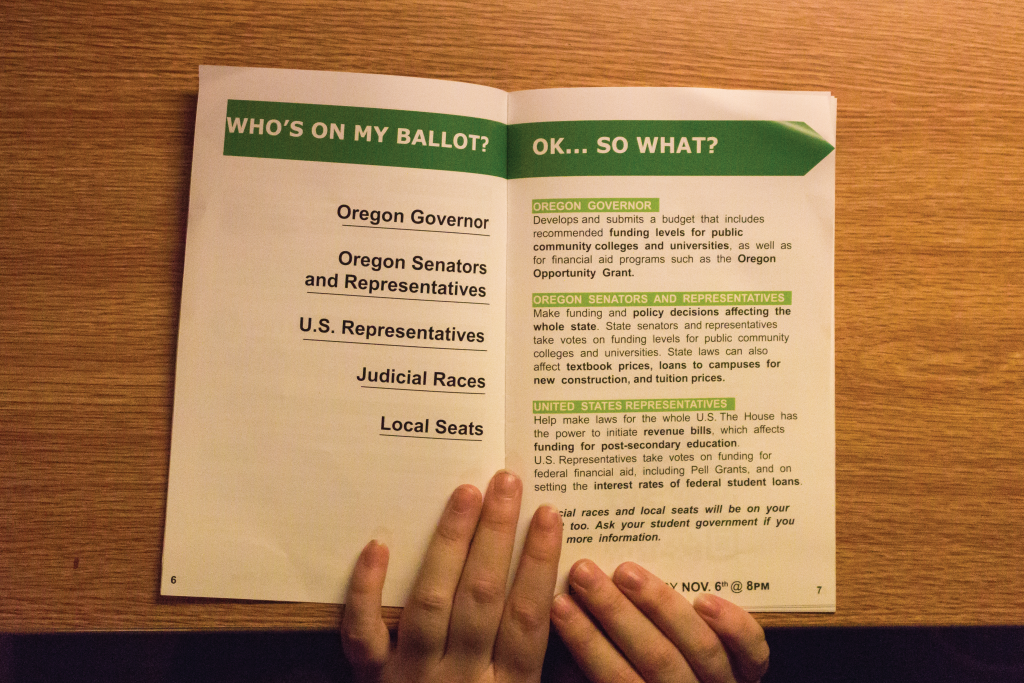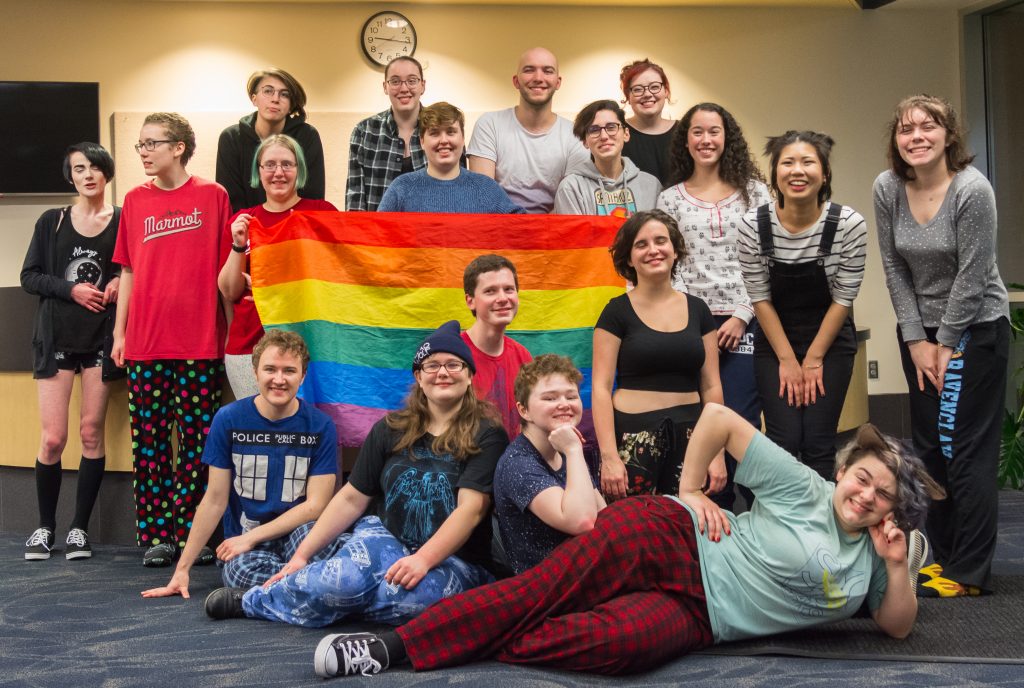
Bailey Thompson | News Editor
Preparing for the Thanksgiving holiday, The WOU Food Pantry compiled 50 Thanksgiving dinner baskets for families in need in the community. After assembling the baskets on Nov. 19 and 20, The Food Pantry was ready to pass out the baskets on Nov. 21 in the Werner University Center. Students and community members alike were able to sign up for baskets ahead of time which would be ready to pick up later on.
Leading the efforts to organize the event, Libby Vigil, senior sociology major and WOU Food Pantry Campus Outreach Coordinator, explained why WOU Food Pantry had hosted this outreach program for a number of years.
“We like to do events for people, and we know that the holidays can be kind of hard,” said Vigil. “So just being able to provide a meal for those in our community is the most important thing.”
Vigil explained that the centerpiece of the meals — the hams and turkeys — had been donated by an anonymous source who has done this for a number of years. For the rest of the items in the meals, however, Vigil explained that the food was provided by a number of individuals in the community.
“We send out an email to faculty and staff, as well as retired faculty and staff and alumni,” said Vigil. “We ask if they are interested in donating items to our Thanksgiving baskets…(and) they can do a monetary donation as well.”
With the proceeds from this year’s Thanksgiving baskets, Vigil was able to go with her supervisor to the grocery store and fill two shopping carts with any elements of the baskets that were remaining: stuffing, gravy, green bean casserole supplies, potatoes, cranberry sauce and more.
Although The WOU Food Pantry was able to help a number of families in years past, Vigil shared that the donations for baskets this year had exceeded their expectations.
“There’s 50 of them, which is 20 more than there was last year,” said Vigil.
In discussing the hope that she had for this event, Vigil shared the value she perceived in distributing these baskets.
“Food is a really big thing that brings people together in general — no matter if it’s this holiday, or a family dinner, or if you’re not family but you really care about each other,” said Vigil. Furthermore, she explained that “It takes the weight off (of families); there’s a social pressure during this holiday to have a big meal, but we do have a large problem with food insecurity — not only in this community, but also as a country and in the world,” said Vigil.
Then, in discussing the way that The WOU Food Pantry hopes to continue reaching out to the community beyond this holiday, Vigil shared some of the things that she wishes Western students knew about their resource.
“A lot of pantries limit people according to their income or how many people they have…but we don’t really keep track of that since we’re a smaller pantry,” said Vigil. She also wanted to remind people that WOU Food Pantry is “not only for students, but also for community members as well.”
Moving forward, Vigil wanted Western community members to know that she and the rest of the staff are so grateful for their generosity, and that if they are interested in volunteering, the WOU Food Pantry is a very rewarding opportunity. If students would like to volunteer, they can email Vigil at foodpantryvolunteers@wou.edu. And, if anyone is would like to visit the pantry, they are located in the Oregon Military Academy Building and their hours are posted on Western’s website.
Contact the author at howlnews@wou.edu
Photo courtesy of Bailey Thompson







